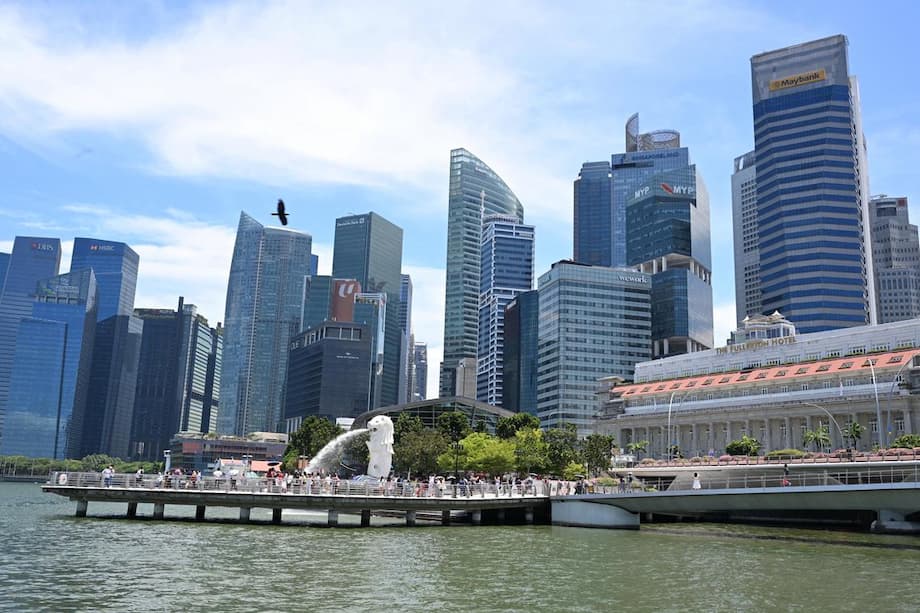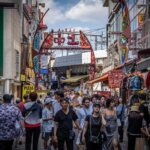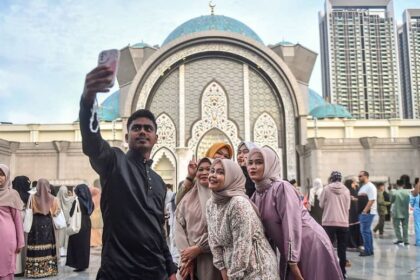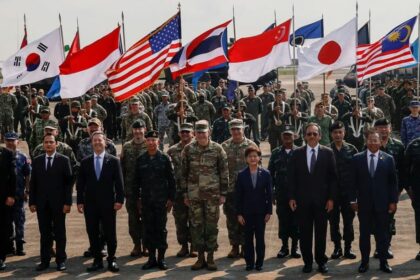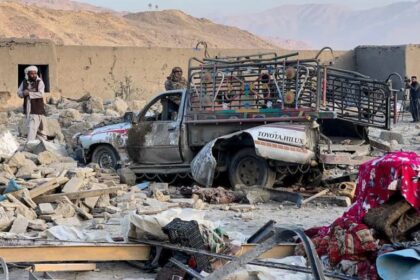Singapore Tops Asia in Global Peace Index 2025
Singapore has once again been named Asia’s most peaceful nation and ranks sixth globally in the 2025 Global Peace Index (GPI), according to the latest report by the Institute for Economics and Peace (IEP). This achievement comes amid a backdrop of rising global conflicts, tightening borders, and economic uncertainty, making Singapore’s continued stability and safety all the more remarkable.
- Singapore Tops Asia in Global Peace Index 2025
- What Is the Global Peace Index and How Is It Measured?
- Singapore’s Unique Position: Why Is It So Peaceful?
- How Does Singapore Compare Globally?
- Peace in the Asia-Pacific: Regional Trends and Challenges
- The Broader Impact of Peace: Economic and Social Benefits
- Challenges Ahead: Can Singapore Sustain Its Peace?
- In Summary
The GPI, now in its 19th edition, evaluates 163 countries and territories using 23 qualitative and quantitative indicators across three core domains: societal safety and security, ongoing domestic and international conflict, and militarisation. The 2025 index highlights a continuing decline in global peacefulness, with the number of state-based conflicts reaching its highest level since World War II. Despite this, Singapore stands out as a beacon of calm and order in both the region and the world.
What Is the Global Peace Index and How Is It Measured?
The Global Peace Index is the world’s leading measure of national peacefulness, developed by the Australia-based Institute for Economics and Peace. It covers 99.7% of the world’s population and is updated annually in consultation with international peace experts and data from the Economist Intelligence Unit.
The GPI uses 23 indicators grouped into three main domains:
- Societal Safety and Security: Includes crime rates, perceptions of criminality, homicide rates, and the impact of terrorism.
- Ongoing Domestic and International Conflict: Measures the extent of internal and external conflicts, deaths from conflict, and relations with neighboring countries.
- Militarisation: Assesses military expenditure, weapons imports, and the presence of armed services.
Each indicator is normalized on a scale of 1 to 5 and weighted by an expert panel. The index also distinguishes between “Negative Peace” (the absence of violence or fear of violence) and “Positive Peace” (the attitudes, institutions, and structures that create and sustain peaceful societies).
Singapore’s Unique Position: Why Is It So Peaceful?
Singapore’s sixth-place global ranking and top spot in Asia are not accidental. The city-state consistently scores exceptionally high in the domains of safety and security, and ongoing conflict, with virtually no recent conflict deaths or external military involvement. Locals and experts alike point to several key factors behind Singapore’s peacefulness:
- Strict Laws and Effective Enforcement: Singapore is renowned for its tough laws and rigorous enforcement. Senior engineer Ricky Ignatius Morier explained, “Singapore has very low crime rates because of strict laws that people follow and adhere to. There are consequences for crimes, making people mindful of their actions.”
- Low Crime and Public Order: The environment in Singapore reinforces a sense of safety for both residents and visitors. Streets are well-lit, and security cameras are widespread, making crimes like robbery or pickpocketing difficult. As Dr. Ed Araral from the National University of Singapore noted, “My daughter can take public transport past midnight without worry, something I would not feel safe about in Manila.”
- Political Stability and Good Governance: Singapore’s government is known for its efficiency, transparency, and low levels of corruption. These factors contribute to a stable society where people trust institutions and feel secure in their daily lives.
- Social Cohesion and Community Trust: The city-state’s multicultural society is underpinned by policies that promote harmony and mutual respect. This social fabric helps prevent internal conflicts and fosters a collective commitment to peace.
Singapore’s high ranking is even more impressive given the global context. The 2025 GPI notes that 97 countries saw a deterioration in peacefulness, the highest number since the index began. The world is experiencing more conflicts, increased militarisation, and record numbers of refugees and internally displaced persons. Yet Singapore remains an outlier, maintaining and even strengthening its peaceful environment.
Comparing Singapore to Other Asian Nations
While Singapore leads Asia, only Japan (12th) and Malaysia (13th) join it near the top of the global rankings. Other regional countries such as Vietnam (38th), Indonesia (49th), and Thailand (86th) lag behind, reflecting varying degrees of internal stability and security. Myanmar, embroiled in civil war since 2021, is the least peaceful country in the Asia-Pacific region, ranking 153rd globally.
Malaysia’s Chief Secretary to the Government, Shamsul Azri Abu Bakar, expressed pride in Malaysia’s ranking, attributing it to the efforts of both government and citizens in maintaining peace and stability. However, Singapore’s consistent top performance sets it apart as a model for the region.
How Does Singapore Compare Globally?
Globally, the top five most peaceful countries in 2025 are Iceland, Ireland, New Zealand, Austria, and Switzerland. Singapore is the only Asian country in the top 10, followed by Portugal, Denmark, Slovenia, and Finland. Iceland has held the number one spot since 2008, with residents describing a strong sense of community and safety in everyday life. Ireland and New Zealand have also improved their rankings, thanks to reductions in militarisation and strong social systems.
In contrast, the least peaceful countries include Russia (now ranked last for the first time), Ukraine, Sudan, the Democratic Republic of Congo, Yemen, Afghanistan, Syria, South Sudan, Israel, and Mali. The United States, despite its global influence, ranks 128th, reflecting ongoing internal and external conflicts, high crime rates, and political polarization.
What Makes the Most Peaceful Countries Stand Out?
The top-ranked countries share several characteristics:
- High Levels of Positive Peace: These nations have strong institutions, low corruption, equitable resource distribution, and high levels of human capital.
- Minimal Involvement in Conflict: They avoid external military entanglements and maintain stable internal environments.
- Controlled Militarisation: Military spending is kept in check, and resources are focused on social development.
- Strong Societal Trust: Residents trust their governments and each other, fostering a sense of safety and community.
Singapore, in particular, is praised for its effective governance, low crime, and robust legal system. While some residents note that certain freedoms are limited, the trade-off is a high degree of personal safety and public order.
Peace in the Asia-Pacific: Regional Trends and Challenges
The Asia-Pacific region remains the second most peaceful in the world, despite a slight dip in peacefulness in 2025. New Zealand is the region’s most peaceful country, followed by Japan, Malaysia, and Singapore. The region’s overall stability is supported by strong social systems, effective law enforcement, and a focus on community well-being.
However, not all countries in the region share this positive outlook. Myanmar’s ongoing civil war has led to a dramatic deterioration in its peace ranking. Indonesia, on the other hand, recorded the largest improvement in peacefulness, with significant gains against terrorist organizations and no major attacks outside West Papua in the past three years.
Travel Safety: Singapore’s Reputation Among Solo and Female Travelers
Singapore’s reputation for safety extends to its status as a top destination for solo and female travelers. The city-state’s ultra-low crime rates, strict law enforcement, and clean environment make it a comfortable and secure place for visitors. Public transport is safe at all hours, and emergency response systems are efficient and reliable.
Travel experts consistently rank Singapore among the safest countries in the world, alongside New Zealand and Japan. This reputation is a significant draw for tourists and expatriates seeking a secure and orderly environment.
The Broader Impact of Peace: Economic and Social Benefits
Peace is not just a moral or social good—it has tangible economic benefits. According to the 2025 GPI, violence cost the global economy nearly $20 trillion in 2024, or 11.6% of global GDP. Peaceful societies enjoy higher income growth, stronger currencies, more foreign investment, and greater happiness. They also have lower costs associated with violence, higher productivity, and better education outcomes.
Singapore’s economic success is closely linked to its peaceful environment. The city-state attracts international businesses, investors, and skilled workers, all drawn by its stability and predictability. This virtuous cycle reinforces both peace and prosperity.
Peace and Sustainability: A New Frontier
The latest GPI report draws a connection between peace and sustainability. More peaceful nations are better positioned to implement social and environmental policies, manage resources effectively, and pursue inclusive governance. Singapore’s commitment to sustainability, from green urban planning to social equity initiatives, is supported by its stable and peaceful society.
Challenges Ahead: Can Singapore Sustain Its Peace?
While Singapore’s achievements are impressive, maintaining peace is an ongoing challenge. The global environment is increasingly volatile, with new conflicts, rising militarisation, and economic uncertainty. The GPI notes that global peacefulness has declined in 13 of the past 17 years, and the gap between the most and least peaceful countries is widening.
Singapore’s continued success will depend on its ability to adapt to changing circumstances, address emerging threats, and sustain the social cohesion and good governance that underpin its peacefulness. As the world becomes more unpredictable, Singapore’s model offers valuable lessons—but also faces new tests.
In Summary
- Singapore is ranked as Asia’s most peaceful nation and sixth globally in the 2025 Global Peace Index.
- The city-state excels in safety, security, and absence of conflict, thanks to strict laws, effective governance, and strong social cohesion.
- Globally, the top five most peaceful countries are Iceland, Ireland, New Zealand, Austria, and Switzerland, with Singapore as the only Asian country in the top 10.
- The Asia-Pacific region remains the world’s second most peaceful, though some countries face significant challenges.
- Peace brings economic and social benefits, making Singapore an attractive destination for businesses, tourists, and expatriates.
- Maintaining peace will require ongoing vigilance and adaptation as global instability rises.


